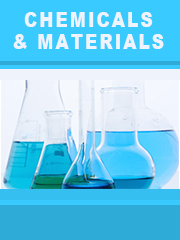The global Solvent Recycling Technology market was valued at US$ 1009.6 million in 2022 and is projected to reach US$ 1321.8 million by 2029, at a CAGR of 3.9% during the forecast period. The influence of COVID-19 and the Russia-Ukraine War were considered while estimating market sizes.
The USA market for Global Solvent Recycling Technology market is estimated to increase from USD million in 2022 to reach USD million by 2030, at a CAGR during the forecast period of 2023 through 2030.
The China market for Global Solvent Recycling Technology market is estimated to increase from USD million in 2022 to reach USD million by 2030, at a CAGR during the forecast period of 2023 through 2030.
The Europe market for Global Solvent Recycling Technology market is estimated to increase from USD million in 2022 to reach USD million by 2030, at a CAGR during the forecast period of 2023 through 2030.
Solvent recycling is the process of taking used, dirty solvents and cleaning them until the solvent is returned to its pure form or to any acceptable specification. Used solvents are placed in a solvent recycler and put through a process that fractionates and distills them from the chemicals that made them dirty those introduced to create a reaction with the solvent. Aside from the positive environmental impact from solvent recycling, a key benefit is cost reduction. Companies dont need to buy the same amount of solvent, because it can be recycled, and disposal fees are greatly reduced with less of the dirty solvent discarded. This can be true for any segment of industry that uses solvents, including laboratories, auto body shops, paint shops and paint contractors.
In the solvent recycling market, there are three types of vendors. Some companies like Clean Planet Chemical, can offer recycling technology and provide recycling service, and customers are charged for the recycled solvent. The other type is that companies like IST Pure, mainly take selling solvent recycling machines as their key business. The third type is that companies like Maratek Environmental can both provide service and sell machines.
In this report, Sales (K MT) means the waste solvent handling volume of companies providing recycling service. And the "Sales Revenue (Million USD)" and "Price (USD/MT)" means the revenue and handling price for the recycling waste solvent respectively.
This report aims to provide a comprehensive presentation of the global market for Solvent Recycling Technology, with both quantitative and qualitative analysis, to help readers develop business/growth strategies, assess the market competitive situation, analyze their position in the current marketplace, and make informed business decisions regarding Solvent Recycling Technology. This report contains market size and forecasts of Solvent Recycling Technology in global, including the following market information:
- Global Solvent Recycling Technology Market Revenue, 2018-2023, 2024-2029, ($ millions)
- Global top five companies in 2022 (%)
The main players including Veolia, Clean Planet Chemical, CycleSolv, Tradebe and Clean Harbors. The top five companies occupied about 55% sales revenue share.
We surveyed the Solvent Recycling Technology companies, and industry experts on this industry, involving the revenue, demand, product type, recent developments and plans, industry trends, drivers, challenges, obstacles, and potential risks.
Total Market by Segment:
Global Solvent Recycling Technology Market, by Type, 2018-2023, 2024-2029 ($ millions)
Global Solvent Recycling Technology Market Segment Percentages, by Type, 2022 (%)
- On-site Solvent Recycling
- Off-site Solvent Recycling
Global Solvent Recycling Technology Market, by Application, 2018-2023, 2024-2029 ($ millions)
Global Solvent Recycling Technology Market Segment Percentages, by Application, 2022 (%)
- Chemical
- Pharmaceutical
- Others
Global Solvent Recycling Technology Market, By Region and Country, 2018-2023, 2024-2029 ($ Millions)
Global Solvent Recycling Technology Market Segment Percentages, By Region and Country, 2022 (%)
- North America (United States, Canada, Mexico)
- Europe (Germany, France, United Kingdom, Italy, Spain, Rest of Europe)
- Asia-Pacific (China, India, Japan, South Korea, Australia, Rest of APAC)
- The Middle East and Africa (Middle East, Africa)
- South and Central America (Brazil, Argentina, Rest of SCA)
Competitor Analysis
The report also provides analysis of leading market participants including:
- Key companies Solvent Recycling Technology revenues in global market, 2018-2023 (estimated), ($ millions)
- Key companies Solvent Recycling Technology revenues share in global market, 2022 (%)
key players include:
- Clean Planet Chemical
- IST Pure
- Maratek Environmental
- Veolia
- CBG Technologies
- CycleSolv
- Tradebe
Outline of Major Chapters:
Chapter 1: Introduces the definition of Solvent Recycling Technology, market overview.
Chapter 2: Global Solvent Recycling Technology market size in revenue.
Chapter 3: Detailed analysis of Solvent Recycling Technology company competitive landscape, revenue and market share, latest development plan, merger, and acquisition information, etc.
Chapter 4: Provides the analysis of various market segments by type, covering the market size and development potential of each market segment, to help readers find the blue ocean market in different market segments.
Chapter 5: Provides the analysis of various market segments by application, covering the market size and development potential of each market segment, to help readers find the blue ocean market in different downstream markets.
Chapter 6: Sales of Solvent Recycling Technology in regional level and country level. It provides a quantitative analysis of the market size and development potential of each region and its main countries and introduces the market development, future development prospects, market space of each country in the world.
Chapter 7: Provides profiles of key players, introducing the basic situation of the main companies in the market in detail, including product sales, revenue, price, gross margin, product introduction, recent development, etc.
Chapter 8: The main points and conclusions of the report.
